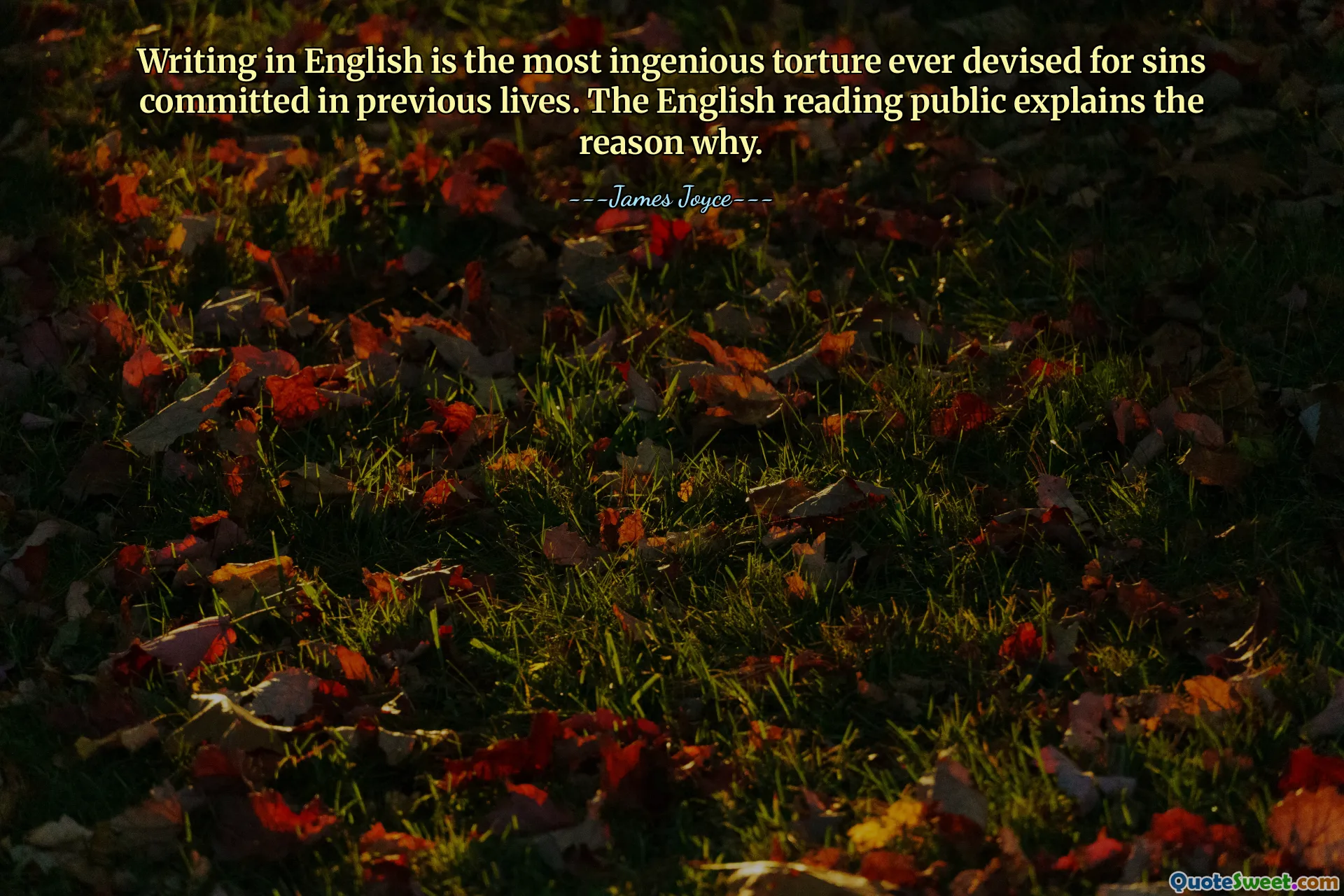
Writing in English is the most ingenious torture ever devised for sins committed in previous lives. The English reading public explains the reason why.
This quote offers a witty and somewhat sardonic perspective on the challenges faced by writers working in the English language. At its core, it suggests that expressing oneself in English can feel like a form of intricate punishment, perhaps due to its complexities, nuances, or the high standards expected by English-speaking audiences. The phrase 'sins committed in previous lives' adds a humorous, almost karmic dimension, implying that the difficulty is rooted in past actions that have consequences in written form. The mention of the 'English reading public' highlights the influence and sometimes demanding nature of the readership, who, with their high expectations and linguistic sophistication, may make writing in English feel like an elaborate trial. This commentary resonates with many writers who find themselves burdened by the weight of language mastery, cultural references, idiomatic expressions, and the suffocatingly high standards of clarity or wit that the English language demands.
It also subtly points to the paradox of language—while it is a tool for connection and expression, it can also serve as a personal torment when striving to achieve perfection or authenticity. The quote gently mocks the idea that words, which are supposed to liberate minds, can sometimes act as chains, especially when navigating the intricacies of English prose. Ultimately, it offers a humorous reflection on the eternal struggle with language, identity, and audience expectations, capturing the bittersweet experience of literary creation in English. It invites writers to ponder the irony that their greatest creations are often born out of frustration, and that perhaps, in some karmic way, this suffering is an integral part of their craft.











